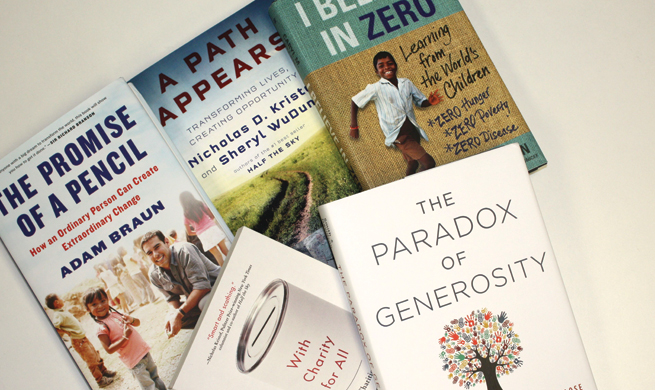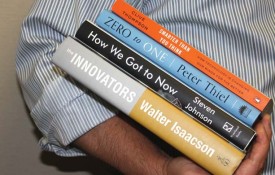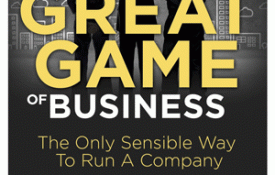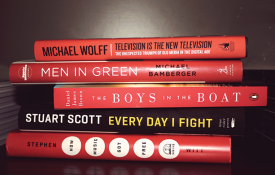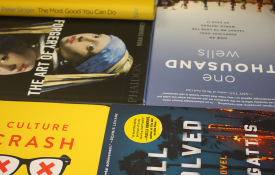Derived from Greek, the word philanthropy means “love for humanity.” It’s displayed by those who want to make a difference; people who care to give as much as take. No matter how one defines it, the resulting equation nets a positive result in the world. Our selections show how philanthropic gestures may be delivered both with individual and global impact. Indeed, in an oft-troubled world, giving back is the noblest of gestures.
A Path Appears: Transforming Lives, Creating Opportunity
Nicholas D. Kristof, Sheryl WuDunn
Knopf; 2014
400 pp.
The husband-and-wife Pulitzer Prize winning team who gave us the New York Times’ best seller “Half the Sky” now details multiple ways to make a positive difference in today’s world. President Bill Clinton chimes in with his praise, calling the book “an inspiring roundup of the many simple and effective ways we can lend our hearts and talents to grow hope and opportunity both at home and around the globe.” Look for the companion PBS series, which debuts January 2015.
The Paradox of Generosity: Giving We Receive, Grasping We Lose
Christian Smith and Hilary Davidson
Oxford University Press, 2014
280 pp.
“The Generosity Paradox” is summarized in the ancient Hebrew proverb, “One man gives freely, yet gains even more; another withholds unduly, but ends up impoverished.” What can be given isn’t purely financial: time, attention, encouragement, and emotion qualify as well. By operating from a framework of abundance and security rather than scarcity and fear, the authors suggest generous people enjoy mentally healthier lives. Based on a study of more than 2,000 Americans from 12 states around the country, the research includes valuable information gleaned from Notre Dame’s “Science of Generosity Initiative.”
The Promise of a Pencil: How an Ordinary Person Can Create Extraordinary Change
Adam Braun
Scribner, 2014
272 pp.
Using social media, cause marketing, and a mere $25, Adam Braun left a lucrative Wall Street career to found Pencils of Promise, a nonprofit initially designed to build schools for underprivileged children in Asia, Latin America, and Africa. More interested in starting a movement than capturing a moment, Braun used his skills to seek donations for his cause and in just five years, completed his 100th school. Read about the transformative possibilities when one man discovers that enormous resources are not required to make a difference in the world.
I Believe in ZERO: Learning from the World’s Children
Caryl M. Stern
St. Martin’s Press, 2013
272 pp.
President and CEO of the U.S. Fund for UNICEF, Caryl Stern espouses the belief that no child should be lacking basic human support, and, in turn, every child and mother can serve as an inspiration. Drawn from the personal experience of her global travels, Stern’s first-hand accounts detail not only devastating hunger and disease, but the shared hopes that all parents have for their children. Emerging from her perspective is a unifying vision of clarity, compassion, and connectivity among all people.
With Charity for All: Why Charities Are Failing and a Better Way to Give
Ken Stern
Anchor, 2013
272 pp
Former NPR CEO Ken Stern uncovers the many paths your charitable gift may travel in a book that explains how the nonprofit sector has lost its way. Are charities delivering on their promises, or is 501(c)(3) becoming a deceptive way to redistribute wealth? Hope is not lost, as Stern also shows us how to proactively reshape the tattered charitable world through increased transparency, accountability, and oversight.






































